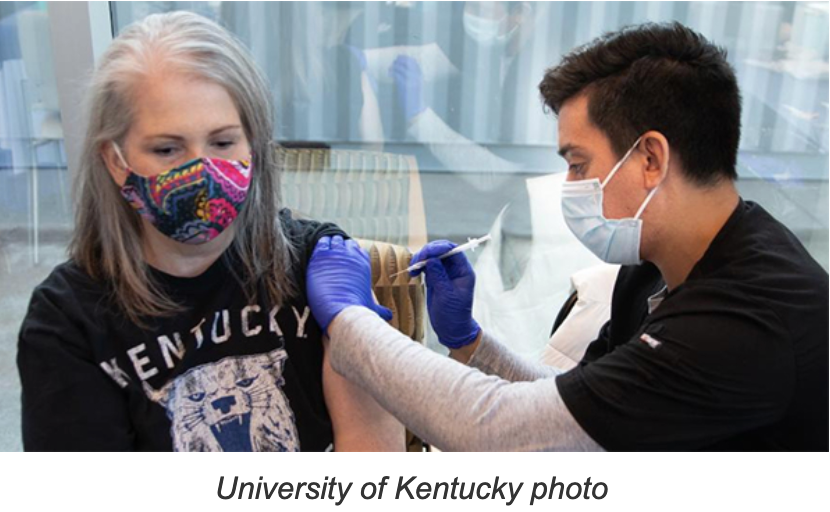Now is the time to get vaccinated or re-vaccinated for Covid-19, as the weather cools and people spend more time indoors

By Vince Venditto
University of Kentucky
As the weather gets colder and gatherings move indoors, vaccines remain the safest and most effective way to protect ourselves from Covid-19.
On Sept. 11, the Food and Drug Administration approved the updated mRNA Covid-19 booster vaccines to align with the currently circulating variants. The vaccines are recommended for everyone six months and older to protect against the serious outcomes of Covid-19.
Vaccines are free to most people in the U.S. who have health insurance, and available for free to everyone through local health centers, or participating pharmacies. Here are questions and answers :
Isn’t the virus getting weaker and not making us as sick? It is true that there are lower rates of hospitalization and death from the virus, compared to the peak of the pandemic, but this is due mostly to the immune response after vaccination and infection. New variants of the virus continue to emerge with changes that sometimes lead to increased risk of infection, increased severity, or ability to avoid our immune system. Vaccination remains the safest method to protect ourselves from severe disease.
Do we still need vaccines? Vaccination is the second most important public-health intervention, only behind clean drinking water. The vaccines are designed to improve our immune response to fight a potential infection, and the new vaccines are designed to provide improved immunity against the virus that is currently circulating, which aligns with how the flu vaccines are developed each year. As the virus continues to change, new vaccines become necessary to target the virus that we are most likely going to be exposed to.
What’s different with the new vaccine? The new mRNA vaccines are based on the XBB.1.5 variant and closely related to other currently circulating variants. While previous vaccines and boosters were effective at inducing robust immunity, the new vaccines align better with the variants that are currently circulating to provide an additional boost to our immune system. The other change to this vaccine is that it is monovalent – meaning there is only one variant included. The prior booster consisted of two variants and the new vaccines provide a more focused immune response on what is currently circulating. Currently, only the updated mRNA vaccines from Pfizer and Moderna have been approved and an alternative vaccine from Novavax is currently under review by the FDA.
When should I get the vaccine? It is recommended that Covid-19, flu, and RSV vaccines be obtained in the fall, around late September and early October. All three vaccines can be given during the same visit or spaced out over three different visits. The biggest benefit of getting all three at the same time is convenience.
Vince Venditto, Ph.D., is an assistant professor of pharmaceutical sciences in the University of Kentucky College of Pharmacy.